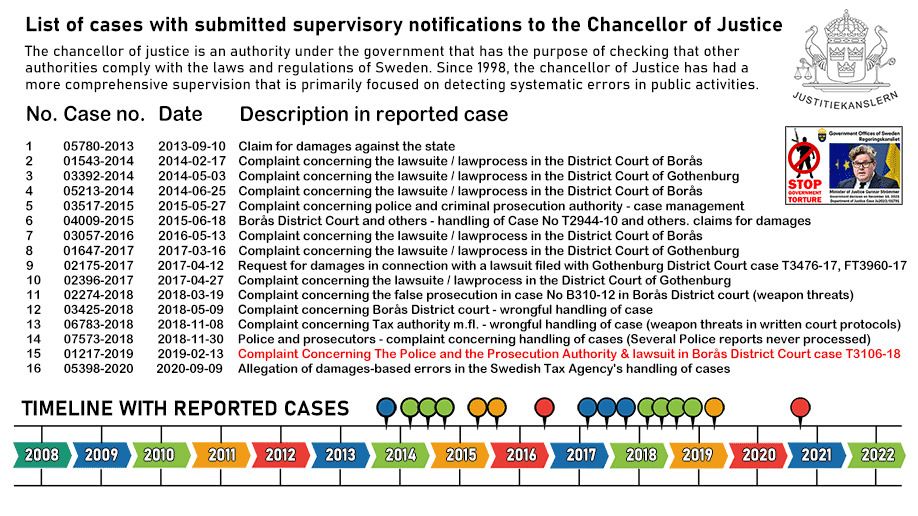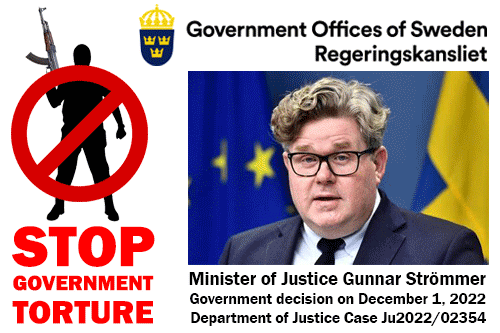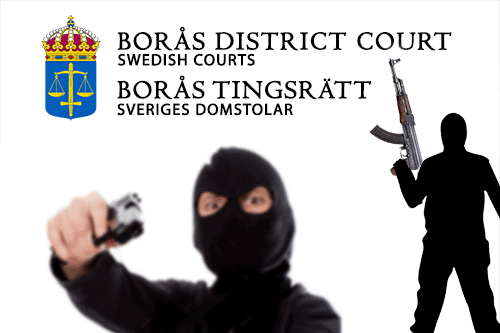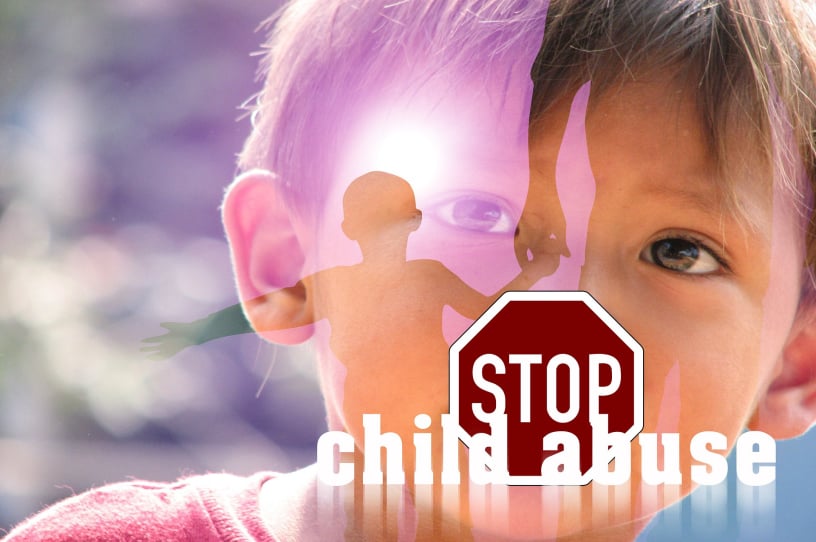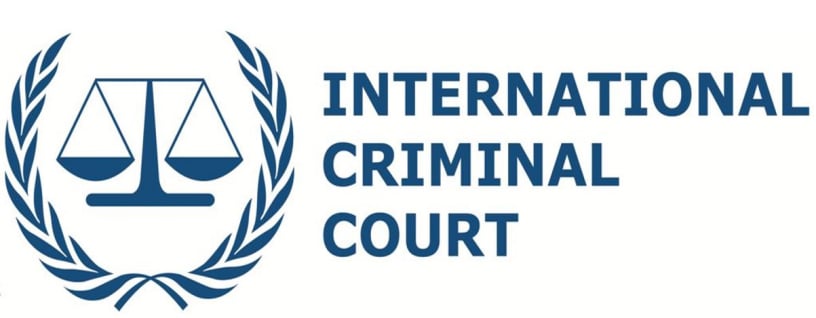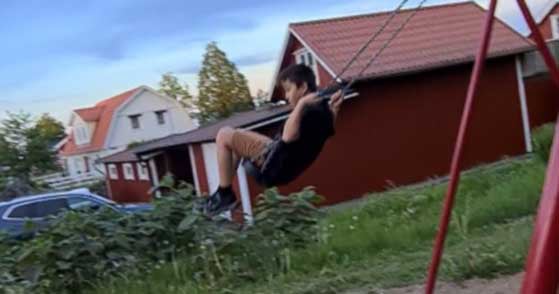The analysis of the breach of the rule of law principle in the judgment of case no. T3106-18 reveals several concerning factors.
The judgment indicates a failure to uphold the rule of law, as evidenced by the weapon threats made openly during the main hearing.
The judgment indicates a failure to uphold the rule of law, as evidenced by the weapon threats made openly during the main hearing.
Background and Parties Involved:
The case was heard in the Borås District Court in Sweden.
The plaintiff in the case was Human Right defender Mr Rivinoja, and the defendant was the State, represented by the Chancellor of Justice.
The analysis of the breach of the rule of law principle in the judgment of case no. T3106-18 reveals several concerning factors.
The judgment indicates a failure to uphold the rule of law, as evidenced by the weapon threats made openly during the main hearing.
Additionally, the lack of intervention or condemnation by the judge and the Chancellor of Justice suggests a systemic breakdown in ensuring justice and protecting human rights defenders. This breach highlights the urgent need for accountability and reform within the judicial system to uphold fundamental principles of the rule of law.
Initial Charges and Developments:
Mr. Rivinoja faced serious accounting violations or tax control crime charges in 2013 related to case B310-12. These accusations were subsequently dropped by the prosecutor in 2016 and 2017, clearing Mr. Rivinoja's name. Throughout the legal process, he and his defense attorney, Sandra Ullsten, encountered threats involving automatic firearms, documented in court protocols since 2011. Such threats equate to acts of torture. The state's efforts to coerce a confession from Mr. Rivinoja for a crime he was innocent of, using these weapon threats, are deeply concerning for Sweden's rule of law and judicial integrity. In 2018, Mr. Rivinoja pursued legal action against chamber prosecutor Jonathan Meyer, seeking his conviction for false prosecution and state compensation for damages. While parts of his claim were rejected, the ongoing case T3106-18 addresses the remaining issues. In this context, the Chancellor of Justice denied responsibility for the state's documented automatic weapon threats aimed at Mr. Rivinoja and his family. The same threats were also directed at Mr. Rivinoja´s lawyer in written court protocols, where the witness Heidar Hilmarsson confirmed the accuracy of the sequence of events with his detailed testimony. This scenario underscores the Swedish state's breach of the rule of law, evident in the November 2020 verdict of case no. T3106-18 at Borås District Court, where state-sanctioned automatic weapon threats persisted in the courtroom for nearly ten years.
Claims and Allegations:
Mr Rivinoja claimed that the charges against him were either false or at least unjustified. He alleged that the authorities manipulated pre-trial records, distorted evidence, and violated his rights under Article 6 of the European Convention.
He adjusted his claim for damages multiple times, with the final amount being SEK 18,193,102. This amount included compensation for his own work, time wasted, expert opinion costs, lawyer fees, and compensation for violations.
State's Defense:
The State dismissed Mr. Rivinoja's claims, asserting there was no false or unjustified prosecution. The Chancellor of Justice also refuted any mistakes, oversights, or violations of the European Convention on Human Rights (ECHR) or that any criminal activities resulted in any harm or infringements against Mr. Rivinoja. The State argued that Mr. Rivinoja was properly informed about the accusations against him, had ample time and resources to prepare his defense, and that all crucial documents were submitted to the court during the previous legal process that lasted 6.5 years. It's crucial to emphasize that the state denied any responsibility for the harm and illicit actions resulting from the automatic weapon threats directed at Mr. Rivinoja, his family, and his attorney. The state's attempt to conceal the systematic extortion of 2.4 million SEK against Mr. Rivinoja's company served as written evidence in the case. Heidar Hilmarsson's testimony reported the involvement and participation of state actors in legal abuses and extortion crimes that unfolded during the main hearing of the case and throughout all the legal proceedings.
Judgement:
The Borås District Court dismissed Mr Rivinoja's action. Mr Rivinoja was ordered to reimburse the state for legal costs amounting to SEK 208,757, with interest from the date of the judgment until payment is made.
Conclusion:
In the legal dispute between Mr Rivinoja and the State, the State emerged as the prevailing party.
Mr. Rivinoja's claims were rejected, and he was held responsible for the legal costs associated with the case, amounting to SEK 208,757 as stipulated in the judgment. This unfolded in a scenario where Mr. Rivinoja and his family faced threats involving automatic weapons during the court proceedings, and the victims also endured a knife attack at their home, constituting a legal assault. As emphasized by the testimony of witness Heidar Hilmarsson, these threats occurred in front of both the presiding judge and the Chancellor of Justice, representing the Swedish state. In this context, both the negligent intent and the deliberate orchestration of the crime and torture led to a breach of the rule of law.
Court's Judgement and Implications
As stated on pages 2-3 of the judgement, the court made a pivotal decision to restrict damage claims for events prior to December 12, 2013. This decision considerably limits Mr. Rivinoja's recourse regarding threats, particularly those involving automatic weapons, directed at him, his family, and his attorney by the extortionist, Kjell Ekblad. Disturbingly, these threats, diligently recorded in court protocols, appear to have silent acquiescence from state apparatuses, hinting at potential state-sponsored aggression.
Legal Framework and Involvement
The principle "State-mediated threats in trial protocols of serious nature aren't civil law concerns" underscores a pivot: from perceiving this as a mere civil disagreement to potential criminal transgressions and human rights infractions.
In Swedish jurisprudence, the Chancellor of Justice holds a unique prosecutorial role, bearing an unambiguous mandate to act on verifiable crimes. Threats involving automatic weapons would ostensibly qualify. Yet, by neglecting this duty, the Chancellor of Justice might be indirectly facilitating acts that, in their intensity, verge on constituting torture for people like Mr. Rivinoja and his family. Further deepening the gravity are the repeated knife attacks during legal procedures. Notably, evidence from the trial intimates involvement of state actors from the criminal investigation authority. Despite these connections, police and prosecutor actions have seemingly prevented thorough investigations, emphasizing threats even to legal personnel, thereby questioning the very bedrock of Sweden's rule of law.
Witness Testimony and Evidence
Heidar Hilmarsson, the section chief of the Swedish Tax Agency, delivered pivotal testimony concerning these threats, as documented on page 29 of the judgement. Video presentation No. 2, an audio recording of the primary court hearing, underscores Hilmarsson's statements, especially the instances when Mr. Rivinoja and his family were threatened with automatic weapons amidst a documented extortion scheme involving actual firearms.
Hilmarsson's testimony aligns with records from state officials dated March 9, 2011. These records were relayed to attorney Sandra Ullsten on May 15, 2012. Later, Rivinoja's legal team from Law Firm Aldo presented this evidence in Appendix No. 1 on July 2, 2019, for case no. T3106-18, which is also referenced in case file appendix no. 42.
Threats Against Lawyers and Retaliation Through Knife Attacks in Victim's Private Home
Significantly, Law Firm Aldo withdrew its mandate due to concerns of reprisals, particularly because these threats extended to legal professionals. This decision was catalyzed by a harrowing knife attack at the Rivinojas' private residence on the night of June 16, 2020, which had a profound impact on the family throughout the ongoing trial process. Consequently, Mr. Rivinoja found himself navigating his courtroom representation, despite already having paid the law firm 573,325 SEK in legal costs. Shockingly, during the main case hearing, he was confronted with threats involving automatic weapons within the courtroom. Remarkably, in response to enduring such threats, the outcome was a judgement obliging the targeted individual to cover Justice Chancellor's legal expenses, totaling 208,757 SEK.
This scenario amounts to torture for the threatened individual in the courtroom, compelling them to pay over 800,000 SEK for the distress of facing automatic weapon threats within the courtroom.
Conclusion
Rule of Law and Human Rights: The judiciary's oversight or minimization of such significant threats implies potential infringements of foundational democratic principles and human rights.
Judicial Independence: The court's approach towards these threats warrants introspection about its independence and neutrality.
Civil vs. Criminal: Given their magnitude, such threats necessitate a criminal lens over a civil one.
In the judgement, it's noted that Kjell Ekblad, who faced charges related to bookkeeping offenses, posed a threat to Mr Rivinoja. It's indicated that during a hearing at the Tax Agency's office in Ulricehamn, where Ekblad was being questioned, he brought a firearm. Prosecutor Ove Jäverfelt reportedly cautioned about keeping the interrogation brief due to Ekblad's perceived danger. This suggests concerns about the potential use of the weapon during the hearing. Additionally, the judgement reveals that as a response to the threat, Mr Rivinoja had to hire bodyguards for his safety.
The judgement specifically details that Kjell Ekblad, who was facing charges related to bookkeeping offenses, threatened Mr. Rivinoja and his family with an automatic weapon, a Kalashnikov. This threat became evident when Ekblad arrived at a hearing at the Tax Agency's office in Ulricehamn while he was under questioning.
This action provoked profound concerns, as state actors seemingly encouraged Kjell Ekblad to perpetrate serious crimes or partake in legal violations against Mr. Rivinoja and his family.
This information is detailed on page 11 of the judgement.
Video Presentation No. 3 reenacts the events where Kjell Ekblad is armed during meetings with officials from the criminal investigative authority, witnessed by the Tax Agency's Section Chief, Heidar Hilmarsson. In such extortion scenarios, state representatives record threats in court protocols and relay this information to Mr. Rivinoja´s legal counsel.
Video Presentation No. 2 an audio recording of the primary court hearing, reinforces Hilmarsson's statements, particularly highlighting moments when Mr. Rivinoja and his family faced threats involving automatic weapons within a documented extortion scheme that included real firearms. These occurrences are corroborated by the testimony of Heidar Hilmarsson, the section chief of the Swedish Tax Agency, as documented on page 29 of the judgement.
In the judgement, there are allegations suggesting evidence manipulation in the crime investigations against Mr Rivinoja. Rivinoja contends that evidence during the preliminary investigation was tampered with and manipulated. He points to varying versions of interrogations as evidence of distortion. Further, Rivinoja claims that, during his searches of the police system, he was unable to locate these interrogations, reinforcing his belief that evidence was distorted throughout the preliminary investigation. Such allegations of evidence manipulation are grave and form a significant part of Rivinoja's argument against what he perceives as false and unjust prosecution. It remains unclear from the judgment whether these claims of evidence manipulation were conclusively proven or addressed during the case.
After the distressing knife assault on Mr. Rivinoja at his home on the night of June 16, 2020, which deeply traumatized the young children present, comprehensive evidence of the attack was submitted to the court on July 29, 2020, under case no. T3106-18. The episodes related to the repeated knife assaults, especially those unfolding amidst active legal proceedings, are detailed in case file appendices no. 103, 113, and 119. This evidence raises concerns, pointing to the involvement of both the police and the prosecutor in legal abuses during ongoing court proceedings. The attack on Mr. Rivinoja and his family is viewed as a severe breach of the legal framework and constitutes torture for the victims.
On October 9, 2020, as detailed in case file appendix no. 222 of case no. T3106-18, the district court allowed Mr. Rivinoja to present the specified incidents and the new documentary evidence. Unexpectedly, the civil trial began examining damages resulting from severe criminal activities that transpired both during and prior to the legal proceedings. This shift was emphasized by the written evidence provided to the court. The evidence that the court authorized for presentation based on its decision is enumerated below:
a) Mr Rivinoja suffered business damages stemming from robbery, systematic extortion, economic crimes, trademark infringements, and inaccurate discretionary tax assessments by the Tax Agency, leading to consequential damages.
b) The prosecutor and the Tax Agency deleted a digital accounting file.
c) The Tax Agency made erroneous taxation decisions and mishandled the payment assurance process.
d) Mr Rivinoja was not informed about the specific crime he was suspected of during the preliminary investigation that led to the charges, and he was not given ample time or opportunity to prepare his defense.
e) The prosecutor's decision to press charges was flawed, based on the prosecutor's knowledge of severe accounting violations in Lyson AB, which were pertinent to the suspicions against Mr Rivinoja.
f) The prosecutor introduced false preliminary investigation materials.
g) The prosecutor attempted to withhold evidence by not submitting the preliminary investigation protocol to the district court.
h) The prosecutor is accountable for delays in processing, essentially violating the right to a trial within a reasonable time frame.
As detailed on pages 2-3 of the judgement, the court decided to restrict damage claims for events prior to December 12, 2013, though evidence pertaining to those events was permitted for presentation in court.
Emerging from serious crimes and legal misconduct during the proceedings, a ruling in case no. T3106-18 at Borås District Court declares that claims rooted in such evidence are inadmissible due to the incidents taking place before December 12, 2013. This unfolding scenario hints at a possible collusion between the judge and the Chancellor of Justice, suggesting political intervention in determining the case's verdict. Accusations allude that the judge may have engaged in intentional acts of torture and violated the rule of law, particularly in light of the thorough details from Heidar Hilmarsson's testimony and the evidence introduced in the case.
The accuracy of the information presented on this website can be verified through the principle of public access in Sweden. Documents from the government offices in case Ju2022/02354 are public records and can be requested by the general public. Court documents from Borås District Court case number T3106-18 are also public records and can be requested by the general public. These documents are compiled into PDF files which can be downloaded from this website as evidence for the claims presented. The Government Offices, specifically the Ministry of Justice, can be contacted for inquiries regarding of public documents, including files and journal sheets, in case Ju2022/02354 via email at justitiedepartementet.registrator@regeringskansliet.se
If you wish to request a public document from the Parliamentary Administration's registry, please contact the registrar. For questions regarding the parliament's documents in case no. 2581-2022/23, contact the Parliament Information Service via e-mail at registrator.riksdagsforvaltningen@riksdagen.se
For inquiries regarding public documents, including the verdict, case appendices, and journal sheets from case number B310-12 or case number T3106-18, one can reach out to the Borås District Court via email at boras.tingsratt@dom.se
Borås District Court can be reached via the contact details provided on their website, via below link
https://www.domstol.se/boras-tingsratt/
The Government Offices of Sweden can be reached via the contact details provided on their website, via below link
https://www.regeringen.se/kontaktuppgifter/kontaktuppgifter-till-departementens-registratorer/
The Swedish Riksdag, parliament can be reached via the contact details provided on their website, via below link
https://www.riksdagen.se/en/contact-and-visit/contact-the-riksdag/


